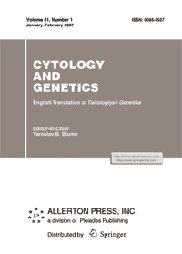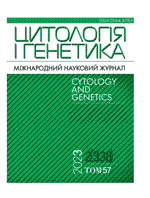Maltose-binding protein (MBP) is a part of the complex regulatory and transport maltose system of Escherichia coli that is responsible for the uptake and efficient catabolism of maltodextrins through the transmembrane signaling at the expense of ATP. In the present work, this bacterial periplasmic protein was identified as a cell death inducer in Nicotiana glutinosa plant. Upon exogenous application at the concentrations more than 50 µg/ml, purified MBP protein induced wilting and localized cell death on the leaves of test plant. DNA fragmentation assay and antioxidant enzymes activity test showed that the induced cell death might be programmed. It was predicted that maltose-binding protein signals programmed cell death (PCD) upstream of reactive oxygen species (ROS) and DNA fragmentation processes in the test plant leaves. However, it needs to be clarified that how MBP switches and signals PCD in plant tissues.
Keywords: cell death, E. coli, maltose-binding protein (MBP), programmed cell death (PCD)

